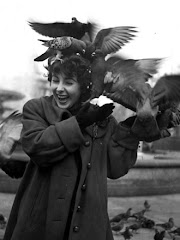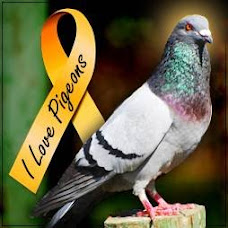Latest developments
Pigeon King Bankruptcy Leaves Birds in Limbo
Submitted by Editor on Fri, 06/27/2008 - 10:51am.
Lancaster Farming
Chris Torres
Staff Writer
Information is still sketchy on what will happen to thousands of pigeons in limbo as a result of the bankruptcy of Pigeon King International last week.
The company, which sold expensive pigeon breeding contracts to prospective buyers, filed for bankruptcy in Canada, with its controversial owner, Arlan Galbraith, declaring the company "dead."
Thousands of producers throughout Canada and the U.S., including many in Pennsylvania, are now left with hundreds if not thousands of pigeons they will have to either sell or destroy as a result of the filing. Many others have likely lost thousands of dollars as a result of their investments in the company.
Live bird markets in Pennsylvania have been inundated with calls from producers who want to get rid of their pigeons.
"We’ve been overwhelmed," said Lisa Laucks of Gingrich Animal Supply, Fredericksburg, Pa. She said the company has gotten requests to sell more than 20,000 pigeons to the live bird market. "There are way too many out there," she said.
The company sold multi-year contracts to prospective investors, some in the range of $250,000 or more, for the right to raise pigeons on the farm with the promise they would be paid for their offspring. The company stated it was stocking pigeons for the lucrative squab market and even trademarked a company, Hinterland Squabs, with the hopes of entering into the market.
But critics, including one former salesman for Pigeon King, claimed the company was operating a "Ponzi" scheme, recruiting new investors to pay off old ones, because they didn’t have a clear market for the birds.
Laucks said many of the pigeons she has seen lack the quality and size to be sold into the squab market.
"They are poor quality pigeons," she said. "The information (Galbraith) gave to producers about selling them as squab was not right."
A handful of states, including Iowa, Maryland and Washington, banned the company from doing business in their states.
The Waterloo Regional Police Department in Canada has opened up an inquiry into the company’s dealings.
But even in the face of bankruptcy, Galbraith defended his business practices in a letter sent out to producers last week. He claims the company was in good financial shape, paying out more than $12 million to purchase pigeons from its contract producers in 2007. He also claimed the pigeon business gave him strength in his fight against Hodgkin’s lymphoma, a form of cancer.
He blamed many factors for the company’s downfall, including the weakening economy, high feed costs and increased building costs.
But he placed most of the blame in the hands of his critics, describing them as "fear mongers" and claiming they prevented the company from recruiting new investors.
"Had the fear mongers not targeted us, we would still be a thriving company establishing the first of several squab processing plants. Instead we have been reduced to ashes by fear. Fear is the strongest weapon in the world and it has been used since the beginning of time to manipulate and control people," Galbraith wrote in his letter.
He added that producers are free to do whatever they want with their pigeons and that a bankruptcy trustee has taken over the company’s dealings.
"This means my hands are now tied and that the trustee is responsible for everything," Galbraith wrote.
Apparently, not all of the company’s producers received his letter.
Robert Leister of Wellsboro, Pa., said Monday he was shocked to learn the company filed for bankruptcy. He had just ordered supplies from the company and was expecting a shipment any day. He even received the company’s latest newsletter, which contained a description of a slaughterhouse they were planning on building.
Leister spent $10,000 on 100 pairs of pigeons and thousands more on renovating a building to house the birds. He said the company honored the contract, but claims he has not made enough money to cover his initial investment. Now, he is left with hundreds of pigeons he doesn’t what to do with.
"I guess there will be a lot of pigeons flying around," Leister said.
Noah Peachey, a Plain Sect farmer from Belleville, Pa., said he knows many other producers in his community that made investments in the company. Five of his nephews bought birds from Pigeon King, all of whom, he said, have no idea what they will do now.
"There are people that are very devastated," Peachey said. "What can you do? We tried to warn them."
According to Dr. David Griswold, acting executive director of the state’s Animal Health and Diagnostic Commission, producers can legally incinerate, render or bury their animals, so long as they do it in a "humane fashion."
Griswold said pigeons carry few diseases and are extremely resistance to avian flu.
Chris Ryder, spokesperson for the Pennsylvania Department of Agriculture, said there are at least six markets in the state exclusively for live birds, all of which are located in the Philadelphia area, that could take the pigeons. But he added the markets can only handle between 200 and 600 birds at a time.
Ryder said there are also other markets in the state that could possibly take some of the pigeons.
Source: Lancaster Farming
Subscribe to:
Post Comments (Atom)












3 comments:
The PKI bankruptcy is a story that wont be forgotten anytime soon in the farming communities. However as a fancier I question if in fact there is some unidentified markets.
Known among fanciers as poor mans race horses.What would happen if the model of horse racing was applied to pigeons? wagering and winnings could easily equel that of horse racing the difference is that almost anyone could afford the boarding and training fees of a pigeon.
To those taken by PKI I am truely sorry for your loss and wish you all the best during these troubling times.
There is an established market for squabs. A squab is a young pigeon that is just 30 days old. It is a niche market, where supply and demand are delicately balanced. The market for squabs in the United States and Canada is supplied by a few established groups of producers working with a network of experienced distributors. The squabs and pigeons produced by PKI associates are much smaller in size than what is industry standards - a sub prime product, in fact. The production and distribution costs of standard and sub prime squabs are similar. Therefore, sub prime squabs and pigeons will have some, but limited marketability at present.
Pigeon farmers unit and get a lawyer and make sure Mr.Galbraith is no better off then the farmers when it is all said and done
Post a Comment